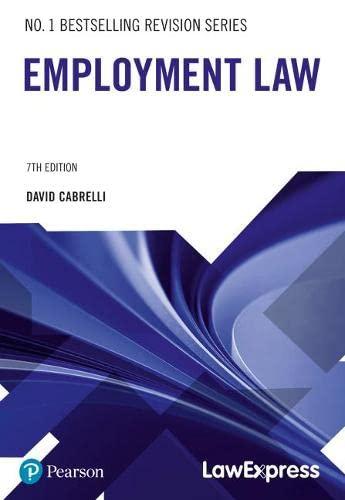Question
Cheong v. Antablin, 16 Cal.4th1063 (1997), concerns two longtime friends who went skiing together. While skiing, Antablin accidentally collided with Cheong, causing injury.Cheong sued Antablin
Cheong v. Antablin, 16 Cal.4th1063 (1997),concerns two longtime friends who went skiing together. While skiing, Antablin accidentally collided with Cheong, causing injury.Cheong sued Antablin for negligence, and the trial court granted a motion for summary judgment based on the doctrine of assumption of risk. The court of appeals affirmed. So did the California Supreme Court, following the traditional line of reasoning that courts should not hold a sports participant liable to a coparticipant for ordinary careless conduct committed during the sport because in the heat of an active sporting event a participant's normal energetic conduct often includes accidentally careless behavior. Only intentional or extremely reckless conduct is actionable from sporting accidents.
Please answer the following questions:
(i) What is negligence?
(ii) What is the doctrine of assumption of risk?
(iii) Do you think the law should recognize the assumption of risk? Why or why not?
(iv) Should Cheong have sued Antablin? Why or why not?
(v) Should the doctrine of assumption of risk be applied as a defense when spectators are injured at professional sports events?
Explain your answers.
Step by Step Solution
There are 3 Steps involved in it
Step: 1

Get Instant Access to Expert-Tailored Solutions
See step-by-step solutions with expert insights and AI powered tools for academic success
Step: 2

Step: 3

Ace Your Homework with AI
Get the answers you need in no time with our AI-driven, step-by-step assistance
Get Started


